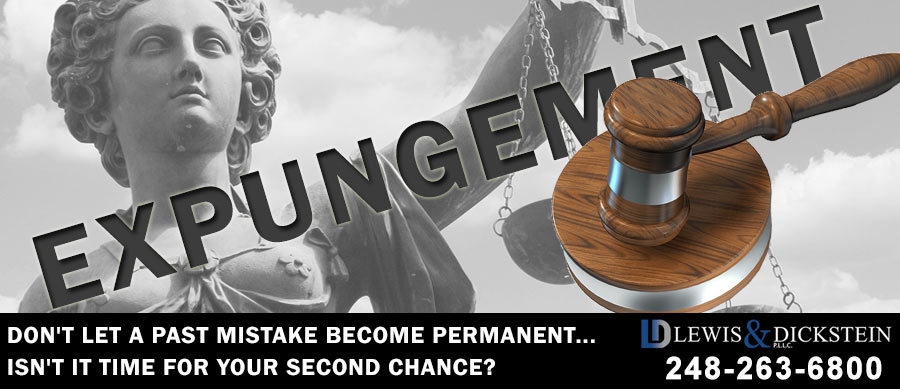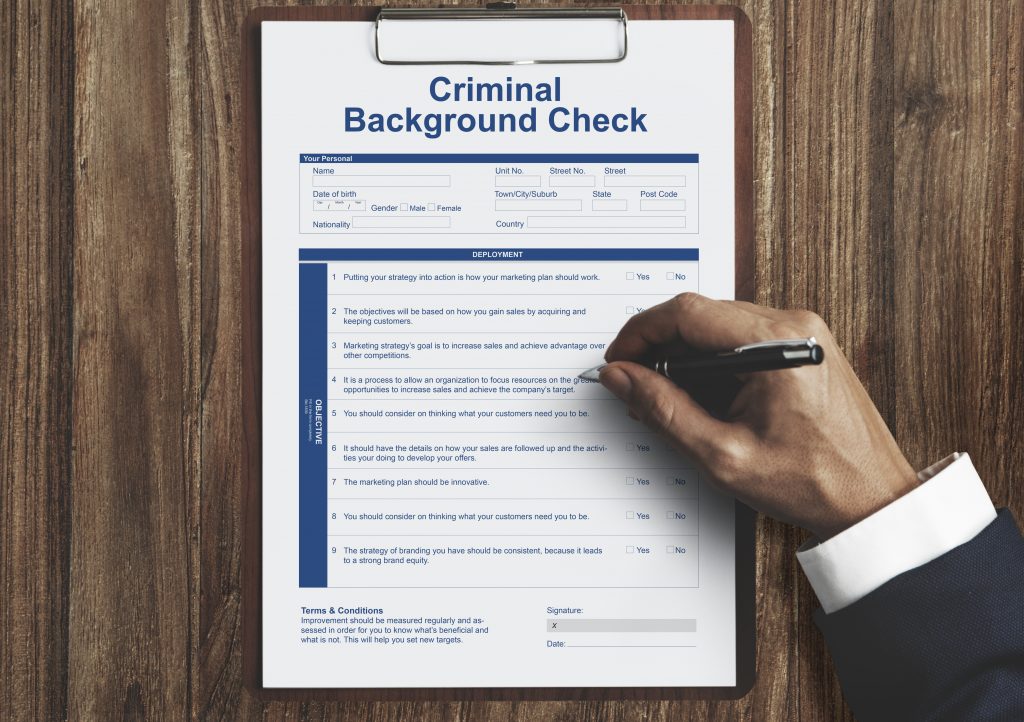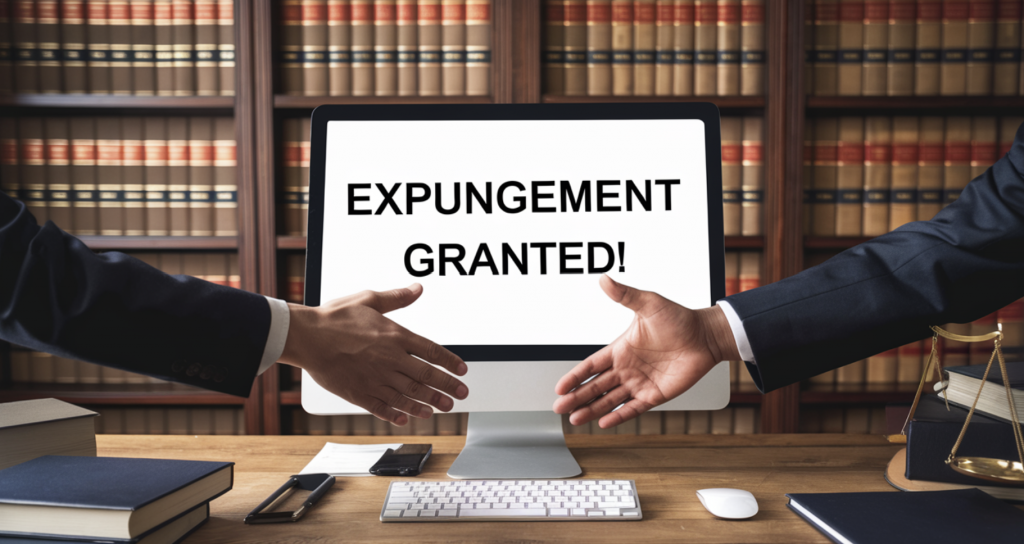Expungement of Multiple Misdemeanors
How do you get an expungement of unlimited misdemeanors? Under Michigan law, multiple misdemeanors are now subject to expungement. With limited exceptions, it is now possible to completely clear someone’s criminal history.

Seeking Expungement of Multiple Misdemeanors
The Expungement Team with LEWIS & DICKSTEIN, P.L.L.C. has observed through decades of practice in Michigan that many people have some trials and tribulations in their youth and then never see the inside of a criminal courtroom again. So, is it fair that someone’s misdemeanor criminal history should follow them through their lives, even though they are fully rehabilitated? The answer is “no.” Michigan’s Clean Slate legislation now makes it possible to completely clear almost all misdemeanors from a petitioner’s criminal history. To completely erase all prior convictions, the petitioner must file a Motion to Set Aside Conviction in each court they had a conviction, even if the prior offense is not showing up on their ICHAT report or Criminal History Report. Expungement of multiple misdemeanors is now possible, and we can show you how.
Almost All Misdemeanors are Eligible for Expungement
Someone with multiple misdemeanors will want to seek expungement of their entire criminal history. Michigan’s Clean Slate laws permit judges to set aside most misdemeanor convictions, regardless of how many are on someone’s record. Today, even convictions under the Motor Vehicle Code are subject to expungement. The only misdemeanors not subject to removal are:
- operating While Intoxicated (second or subsequent offense),
- traffic offenses that cause injury or death, and
- commercial driver’s license violations.
Qualification for Multiple Misdemeanor Expungement
Michigan’s expungement laws outline the qualifications necessary for multiple misdemeanor expungements. A hearing on a Petition to Set Aside Conviction cannot proceed in most cases for (3) three years following the petitioner’s last conviction. Someone seeking to expunge a first offense OWI must wait five (5) years from the date they were released from probation or jail, whichever was last. The waiting period is also five (5) years for offenses designated as “serious misdemeanors.”
In addition to waiting the requisite time, a petitioner must prove that they are rehabilitated and that setting aside the conviction is “consistent with the public welfare.” Most people, including lawyers, fail to persuade judges to set aside convictions if they do not provide sufficient credible proof of rehabilitation or formulate a convincing argument demonstrating that expunging the offense is in the community’s welfare.

Special Rules for OWI First-Offense and Marijuana Convictions
OWI Expungement
In addition to the standard evidence supporting a Motion to Set Aside Conviction, the law requires additional proof to set aside an OWI First-Offense conviction. An OWI First-Offense includes any of the following first-offense violations:
- Operating While Intoxicated (OWI) First (also known as DUI, DWI, and OUI)
- Operating While Visibly Impaired First Offense
- Operating with the Presence of Drugs First Offense
- Operating With Any Bodily Alcohol Content (Zero Tolerance)
- Allowing a Person to Operate a Vehicle Under the Influence
- Operating While Intoxicated or Impaired Due to Illegal Drugs
- Operating While Intoxicated or Impaired Due to Prescription Medication
- Operating with Any Amount of a Schedule 1 Controlled Substance
The petitioner must prove they’ve sufficiently addressed any alcohol or drug abuse issues to win an OWI expungement. They can prove they resolved alcohol and drug abuse issues by demonstrating sufficient treatment or education, written support from family and friends, an updated substance abuse evaluation, or other evidence.
Marijuana Expungement
Multiple marijuana possession convictions, if based on conduct that would be legal in Michigan today, are now eligible for expungement with no waiting period. The person seeking to clear their record must file an Application to Set Aside the conviction in each court where a conviction was entered. The prosecutor might respond to the motion; however, the attorneys with LEWIS & DICKSTEIN, P.L.L.C. rarely see the prosecutor file a response opposing the application. The judge must grant the expungement if the prosecutor does not file a response within 60 days. If the prosecutor does respond, the application the court will schedule the matter for a hearing. For a misdemeanor marijuana expungement, you do not have to prove your circumstances and behavior since the conviction warrant expungement or that setting aside the conviction is in the public welfare.
“Why are some judges reluctant to grant expungements in cases where someone has multiple convictions?”
Michigan law used to limit expungements to one offense. The state then passed a law permitting setting aside up to two misdemeanor convictions. After this change, judges were reluctant to grant relief in more than one case. Now that the law has expanded to permit the expungement of unlimited misdemeanors, judges throughout the state are giving defendants seeking to set aside multiple misdemeanor convictions a hard time. Using a proven and reliable strategy, the attorneys with LEWIS & DICKSTEIN, P.L.L.C. consistently win expungements for clients seeking to set aside multiple felony and misdemeanor convictions in Oakland County, Wayne County, Macomb County, Livingston County, Washtenaw County, and in circuit and district courts all over the state.

“Why should I choose LEWIS & DICKSTEIN, P.L.L.C. to help me with an expungement?”
There is little room for error when seeking an expungement of multiple misdemeanors. Many lawyers fail to do everything necessary to maximize their client’s chances of setting aside numerous misdemeanor convictions. Even experienced criminal defense lawyers struggle with articulating why setting aside a conviction is in the public welfare. The Defense Team with LEWIS & DICKSTEIN, P.L.L.C. utilizes a unique team approach with multiple defense lawyers working together to ensure the client receives the highest possible level of legal representation. Our attorneys do not rely on state forms or standard language that many judges find unpersuasive and lazy. We draft custom pleadings for each client, obtain evidence supporting the request for expungement, and develop a tailored strategy to give each client their best chance of success. If you call us for a free consultation, an experienced attorney will take the time to discuss your situation and determine your best options to clear your record.
Call us today at (248) 263-6800 for a free consultation or complete an online Request for Assistance Form. We will contact you promptly and find a way to help you.
We will find a way to help you.
We Are Not Afraid to Win!
Other Expungement Topics to Explore
How can a misdemeanor on your record cause problems?
A misdemeanor conviction on your criminal record can potentially harm your future in various ways, such as:
- Employment opportunities: Many employers conduct background checks and may be reluctant to hire someone with a criminal record, especially for certain positions. Convictions involving theft, violence, or impropriety can be especially troublesome.
- Housing: Landlords may also run background checks and reject applicants with criminal records, limiting housing options.
- Education: Some colleges and universities may consider a criminal record in the admission process, and some professional licensing boards may refuse to grant licenses to individuals with a criminal record.
- Finances: Certain financial institutions may refuse to grant loans or other financial products to individuals with a criminal record.
- Reputation: A criminal record can harm an individual’s reputation and personal relationships. Some misdemeanors can cause more harm than others. For example, a DWLS or Leaving the Scene of an Accident will not likely cause anyone much grief. However, convictions for domestic violence, assault, drunk driving, retail fraud (shoplifting), theft or embezzlement, and other moral turpitude-related offenses can materially impact someone’s relationships with others.
It’s important to note that not all employers, landlords, schools, etc., have the same standards and policies. However, having a criminal record, especially a misdemeanor, can create barriers in various areas of life.










